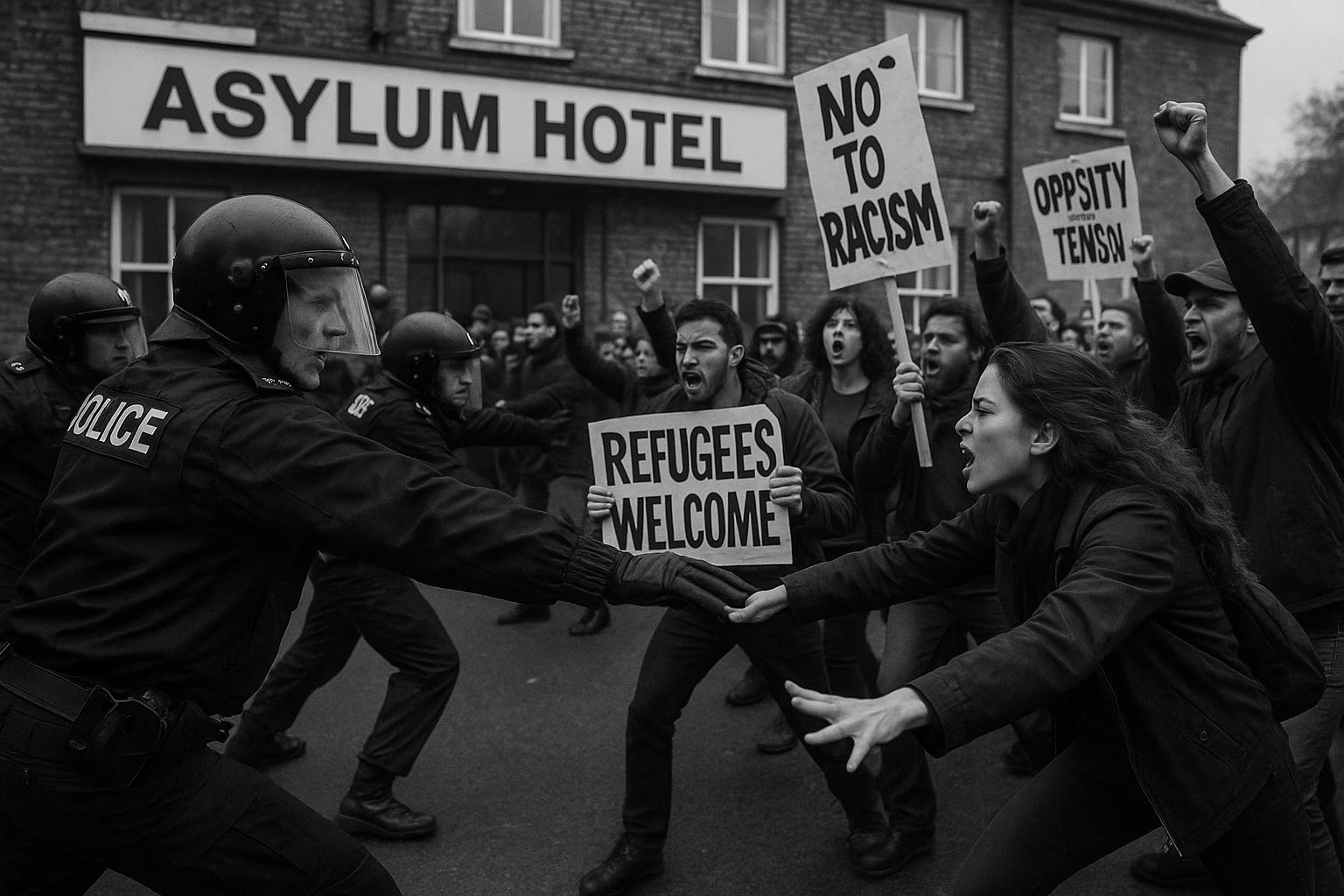The UK Government has proposed a fast track migrant appeals process intended to address the backlog of asylum cases and reduce the time people spend in taxpayer-funded accommodation such as hotels. Home Secretary Yvette Cooper announced plans to replace the current judicial oversight of asylum appeals with a new independent body composed of professionally trained adjudicators. This new body would have statutory powers to prioritise cases, aiming to tackle the 51,000 appeals currently awaiting hearing, which take an average of 53 weeks to resolve. The Government argues the reform is part of a broader plan to end the use of asylum hotels, a contentious issue provoking public protests across towns and cities including Manchester, Norwich, Birmingham, Stevenage, and London.
The proposals seek to address concerns from ministers that some immigration judges have been overly permissive in interpretations of the European Convention on Human Rights (ECHR). An illustrative, widely publicised example involved an Albanian criminal asylum case where the presence of a child who disliked certain foreign foods played a role in allowing the individual to stay. The new appeals panel would reduce such decisions by adjudicators with a specific focus on asylum claims, potentially speeding up removals of those without a right to remain. As Cooper noted, the existing system is "broken," causing "completely unacceptable" delays with "thousands of people in the system for years on end."
Despite these intentions, the reforms have drawn criticism from opposition figures and political parties. Labour’s Shadow Home Secretary Chris Philp has described the proposals as insufficient, arguing they "go nowhere near far enough" since the fundamental rights that permit most illegal immigrants to remain are unchanged. Reform UK, a political party focusing on immigration control, has also condemned the plans as mere "tinkering at the edges" that will not resolve the ongoing crisis involving migrant hotels. Reform’s deputy leader, Richard Tice, called for more radical measures such as the UK’s withdrawal from the ECHR and abolition of the Human Rights Act, alongside immediate detention and deportation of illegal immigrants.
Public sentiment appears largely unsatisfied with current approaches. A YouGov poll commissioned by The Times found that 71% of voters believe Labour leader Keir Starmer is mishandling the asylum hotels issue, with over half of Labour supporters expressing concern over his stance. Immigration and asylum policy rank as the most important issues for nearly 40% of respondents, indicating a significant degree of voter unease about the Government’s handling of migration and border controls.
The broader social context has been marked by emotionally charged protests that have taken place over consecutive days, highlighting the tension within communities hosting asylum hotels. These demonstrations have sometimes seen counter-protesters and police outnumbering activists, reflecting complex public attitudes towards migration and government policies. Local police and councils have faced challenges balancing public order with managing the humanitarian and legal complexities of accommodating asylum seekers amid growing political and social pressures.
While the Government maintains that the fast track appeals system offers a pragmatic solution to reduce asylum processing delays and the use of hotels, critics remain sceptical about its impact on illegal immigration, deportation speed, and the broader small boats crossing crisis. These reforms underscore ongoing political contention around migration policy, judicial interpretation of human rights law, and the balance between humanitarian obligations and border security.
📌 Reference Map:
- Paragraph 1 – [1], [2], [4]
- Paragraph 2 – [1], [4], [7]
- Paragraph 3 – [1], [3]
- Paragraph 4 – [1], [5]
- Paragraph 5 – [1], [6]
- Paragraph 6 – [1], [2], [7]
Source: Noah Wire Services
